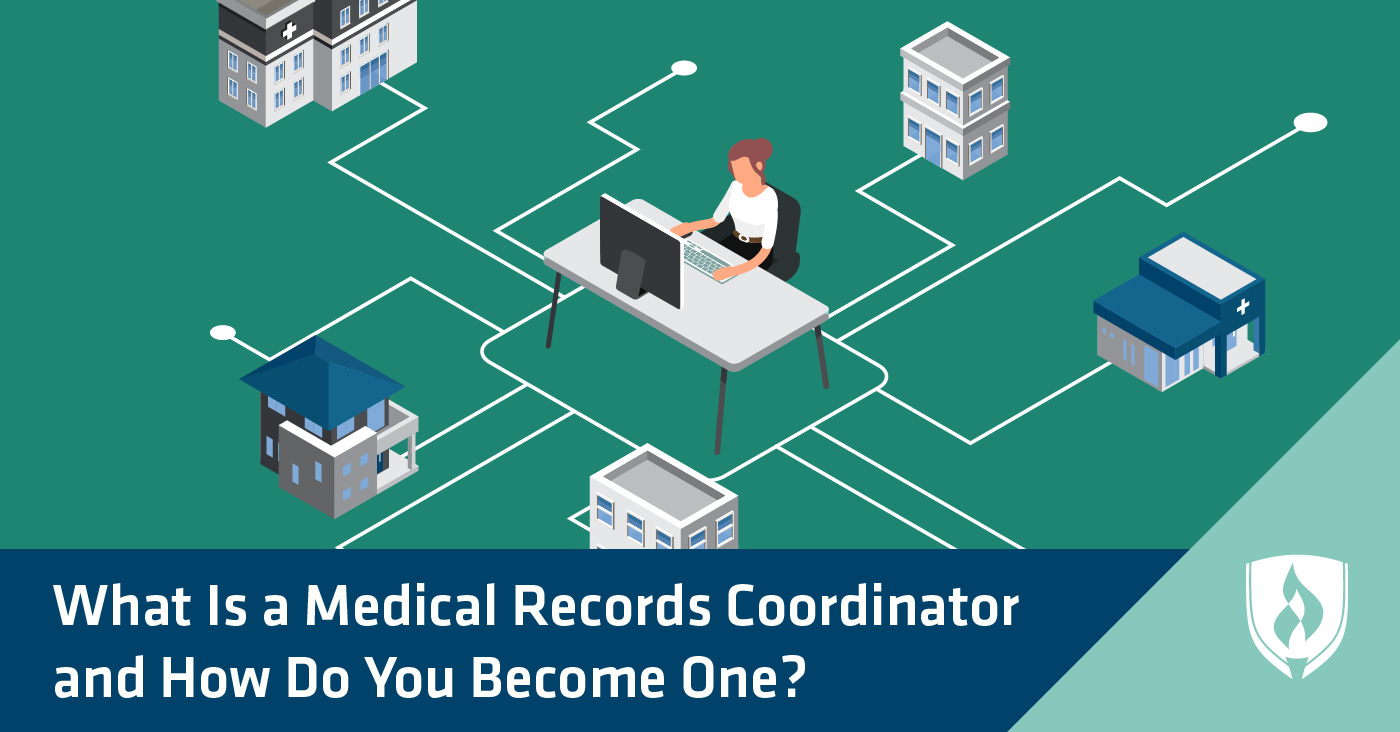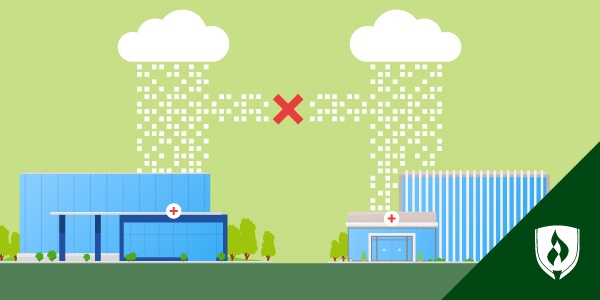
Healthcare workers are not only a critical part of our community, but a rapidly growing sector of the workforce. Like the man behind the curtain in the Wizard of Oz, many of the essential healthcare workers provide services and support to providers and patients behind the scenes. One such profession is the medical records coordinator.
“Medical record management professionals must contend with many complex issues as they meet the requirements of their jobs,” says Yocheved Golani, a certified Health Information Management professional and medical journalist at E-Counseling.com. “The occupation is for hard-working, clever people with a conscience.”
Medical records coordinators provide a key service within healthcare system. Though they do not interact directly with patients, their work can make a significant impact on things like a doctor’s ability to treat a patient with a complete view of their health history, healthcare providers ability to receive proper financial compensation and even large scale data collection for medical research.
Sound interesting? Read on to learn more about the role of a medical records coordinator.
What is a medical records coordinator?
A medical records coordinator is a job title within the area of medical records and health information technology. A medical records coordinator may be known as a medical records manager or a medical records technician. By any name, these professionals compile, process and maintain medical records.
While this may seem like straightforward administrative work, medical records coordinators need a complex understanding of medical, administrative, ethical, legal and regulatory requirements within the healthcare system to perform their important role.
“A failure to excel in assigning the exact qualifying medical codes can prevent benefits to patient populations and even cause harm,” explains Golani.
Medical records coordinators handle highly sensitive information protected by strict legal guidelines. When these records are kept properly, it ensures that healthcare providers and medical researchers have the most up to date and accurate information needed to effectively treat individual patients and patient populations.
What are some common job duties for a medical records coordinator?
Medical records coordinators are responsible for the security measures put in place to protect patient confidentiality. This often includes both software protection and ensuring proper practices among all those with access to medical records. The right to privacy when it comes to personal medical information is legally protected and failures in protocol open up individuals and institutions to enormous penalties. Upholding a right to privacy also protects patients in deeply meaningful and sometimes life-saving ways. This impact is one of many important parts of a medical records coordinator’s professional responsibility.
Medical records coordinators review medical records to ensure completeness, accuracy and compliance with regulations. Medical records coordinators with advanced certifications may also work on medical coding, transferring the notes from a physician into the correct diagnosis and procedure codes to ensure proper billing. Often, medical records coordinators also process patient admission and discharge documents, and assign patients to diagnosis-related groups (DRGs) using computer software.
What skills do you need to become a medical records coordinator?
Medical record coordinators need a high level of software fluency including the ability to adapt to changes in software programs used for medical records and billing.
The highly sensitive and critical information managed by medical record coordinators necessitates attention to detail, focus, and well developed organizational skills.
“Critically important skills in the medical coding industry include having unusually high levels of organization and planning strategies,” Golani says. “Effectiveness matters. Medical coders need to be productive to their maximum ability and to prevent chaos when conflicting demands threaten to mess up procedures, deadlines, and lines of communication. Medical records coordinators must be capable at tracking down missing pieces of documentation, securing medical practitioner cooperation with documentation efforts, and remaining poised as they coordinate medical documentation success for all concerned.”
If a medical records coordinator works with integrity, cooperation and dependability, they quickly become an essential, if unseen, part of a patient’s healthcare team.
Where do medical records coordinators work?
Medical records coordinators primarily work in healthcare facilities such as hospitals, physician’s offices, clinics, outpatient centers and nursing homes. Anywhere medical records are in use may employ a medical records coordinator. These professionals do not work directly with patients, but are a critical part of the administrative side of providing healthcare services.
How do you become a medical records coordinator?
Medical records coordinators rely on a thorough understanding of the medical, administrative, ethical, legal and regulatory requirements of record keeping within the healthcare system, as well as advanced software programming in record keeping and billing. Because of the breadth of this knowledge base, the BLS reports many employers seek medical records coordinators with a college education—like a Health Information Technician Associate’s degree.1
If you are interested in advanced opportunities within medical records coordination, such as medical coding, you may want to attain additional certifications in those specialties. A medical records coordinator with additional skillsets is a valuable and dynamic employee.
Take the first step toward a health information career
If you are interested in the administrative side of healthcare, a career in health information could be a perfect entry point for you. The Rasmussen University Health Information Technician Associate’s degree program can help you qualify for a variety of opportunities in this field—and can be completed in as few as 18 months!2 Visit the degree page to learn more.
1Bureau of Labor Statistics, U.S. Department of Labor, Occupational Outlook Handbook. Information represents national, averaged data for the occupations listed and includes workers at all levels of education and experience. This data does not represent starting salaries. Employment conditions in your area may vary.
2Completion time is dependent upon number of transfer credits accepted and number of courses completed each term.




